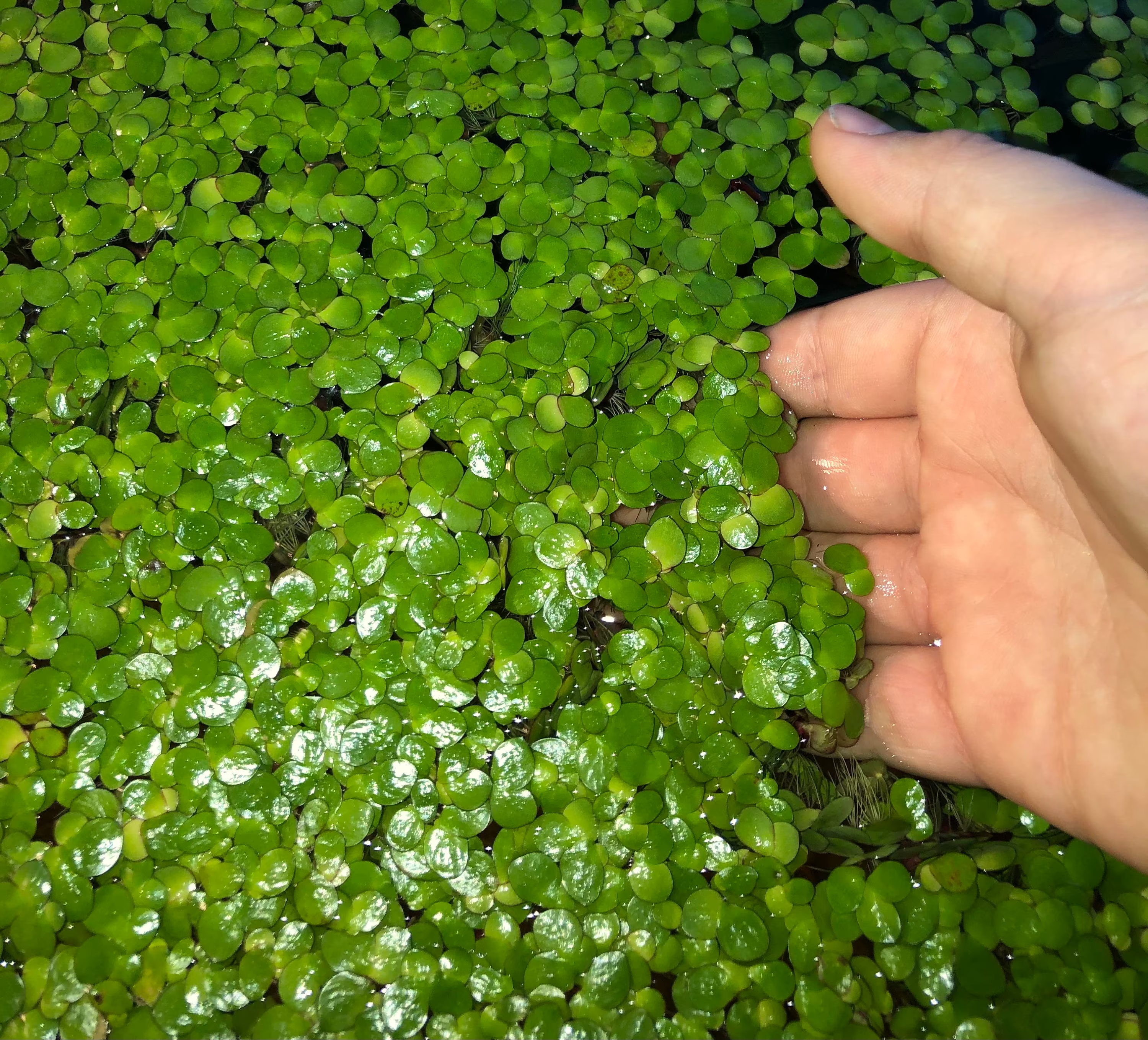
Duckweed
Lemna minor
Basic Information
🌿 Family: Araceae🗺️ Zone: 4-10
Other Names:
- Lesser Duckweed
- Lemna cyclostasa
- Lemna minima
🌡️ Ideal Temperature : 63°F – 79°F
🔥 Heat Tolerance: Up to 95°F
❄️ Cold Tolerance: Down to 32°F
🌱 Type: Perennial
Layers
- Aquatic
Functions
- Edible
- Animal Fodder
- Water Purifier
- Biofuel
Pests
No pests associated with this plant.
Companions
- Water Lily
- Cattail
Plants to Avoid
- Watermeal
Description
Duckweed (*Lemna minor*) is a free-floating aquatic perennial known for its rapid growth and small size. Each plant consists of a single, flat, oval-shaped frond approximately 1.5 to 3.5 millimeters in length, making it one of the smallest flowering plants. The fronds float on the surface of still or slow-moving freshwater bodies, with fine roots hanging beneath. Duckweed thrives in nutrient-rich waters and can form dense, green mats that cover the water's surface.
🌞💧 Sun and Water Requirements:
Duckweed prefers full sun exposure but can tolerate partial shade. It grows best in calm, nutrient-rich waters with a neutral pH. Optimal water temperatures range between 17°C and 26°C (63°F to 79°F).
✂️🫘 Methods to Propagate:
Propagation primarily occurs vegetatively, with new fronds budding off from parent plants. To cultivate duckweed, introduce a small number of fronds to a nutrient-rich, still water body. Ensure adequate sunlight and monitor nutrient levels to promote rapid growth.
🧑🌾👩🌾 When to Harvest:
Duckweed can be harvested year-round in suitable climates. In temperate regions, growth slows during cooler months. Harvest by skimming the floating mats from the water's surface, ensuring some fronds remain to sustain the population.
Purpose
- **Edible:** Duckweed is a nutritious food source, containing up to 40% protein by dry weight. It is consumed in parts of Asia and is being explored as a sustainable protein alternative.
- **Animal Fodder:** Due to its high protein content, duckweed serves as feed for livestock, poultry, and fish, promoting efficient growth and health.
- **Water Purifier:** Duckweed absorbs excess nutrients, such as nitrogen and phosphorus, from water bodies, aiding in the reduction of water pollution and preventing algal blooms.
- **Biofuel:** High starch and oil content, ideal for bioethanol and biogas production.